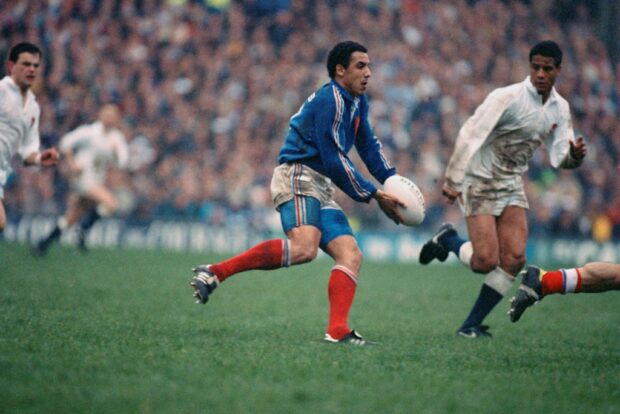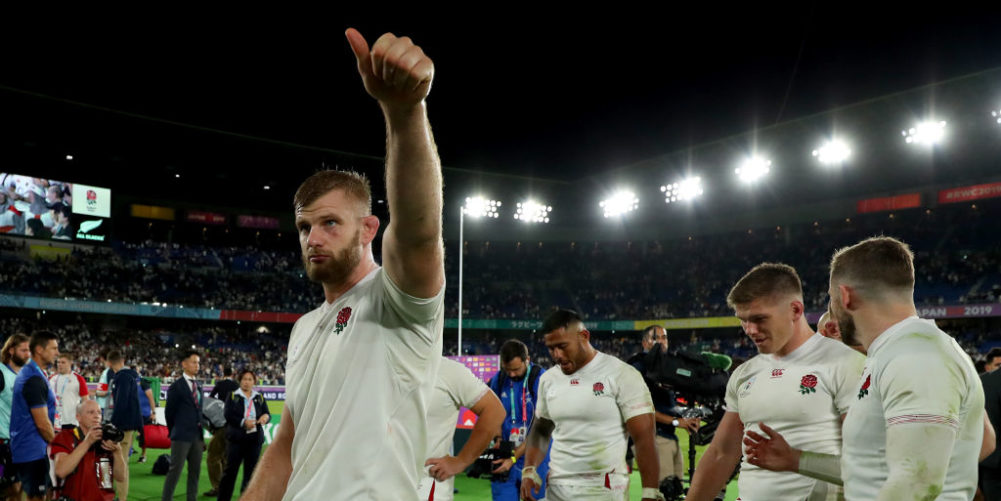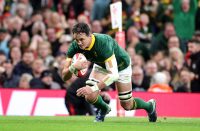Well, who would have guessed it was semi-finals week with so many childish statements by all the teams involved?
The accusations of spying was once again raised by all the competing teams, as if there was not enough coverage of how each team train and play which more than informs their opponents of how they are likely to approach the games.
Looking back at last week’s games would give all sides a vision of how each would play this week, with as usual the teams that make the fewest errors getting through.
Englands quarter-final against Australia saw the Aussies throw caution to the wind and suffer the consequences against a well-drilled England team simply picking off the opportunities Australia created for them.
Meanwhile, a wandering elbow condemned France to failure against a stubborn Wales team who in the end, perhaps with some help from Jaco Peyper, managed to steal a one point win.
In the other games, the All Blacks put on a relentless display to condemn Ireland to an early trip home, while the South Africans ended the Japanese dream with a strong display of controlled rugby.
For the four teams taking the early flights home it will be a bitter sweet feeling, knowing they had battled through the Pools only to miss out in the first match that mattered.
For those sides who have made the grade’, I would think their week of preparation would not have been too dissimilar to how we prepared in 1991. A short celebratory relaxation for having made it to the semis, (ours was a round of golf at St Andrews), and then total focus on the team we faced the next weekend.
The coaches would have been trying to identify areas of weakness in their own teams as well as the opposition and trying to find a way of making the training relevant and specific to the team they were facing.
For the players the sense of the possible has to be contained, with all thoughts of the final pushed out of your mind, because you have a game to win before you can dream of what might happen next.
When you reach the knockout stage of the Cup you analyse the opposition and look for the key players in their team and try to think of ways of putting them off their game to gain an advantage no matter how small.
In the ‘91 quarter final, Serge Blanco was the man we knew made the difference for the French team, a talented player who had the ability to change the course of a game but was very temperamental and emotional. Upset him, and his mind would lose focus on the game.
We chose a simple option: at the first opportunity hoist a high ball on Blanco and all forwards target the ruck that was formed when he caught the ball and ruck over him.

This worked perfectly with Blanco delivered on our side only for a young Jason Leonard to arrive late and give away a penalty for rucking Blanco. Their penalty didn’t make touch and was returned by Nigel Heslop who followed his kick and tackled Blanco who immediately punched Heslop, so we knew our plan had worked.
In the semi-final against Scotland they had dropped hooker Kenny Milne for the more mobile John Allen, a South African I played against for a World XV and I knew was a weakness in the scrum which proved to be correct when we targeted that area in the game.
However, our place in the final was sealed by a mistake, which I am sure still haunts Gavin Hastings to this day. With the scores level, Gavin had a penalty kick at goal from more or less in front of the posts on the 22 metre line, a kick Gavin would usually kick with no problems. But for some reason this time he totally mis-kicked and sent the ball wide of the posts. We got a scrum back in the Scotland 22 and Rob Andrew dropped the goal that took us through.
As for all the comments regarding the match day referees, they would seem to have been more about getting your excuses in early rather than how the refs perform.
Last Saturday’s game saw the whole England team rise to the challenge and play at 100 per cent for the full 80 minutes in a style that completely dominated the All Blacks in virtually every facet of the game.
The back row combination of Sam Underhill, Billy Vunipola and Tom Curry has been a revelation and put in a world-class performance.
Eddie Jones’ decision to bring back George Ford proved to be a masterstroke as Ford controlled the tempo of England’s game and where on the pitch that game was played.
The combination of powerful ball carriers and an electric back three kept the All Blacks on the back foot.
A great victory and a first in a World Cup against the All Blacks sets up this England team to go into the final as favourites but, as the All Blacks were favourites for the game, Eddie Jones must keep the players feet firmly on the ground and focus on South Africa.























